NAMB Perspective: June 2016

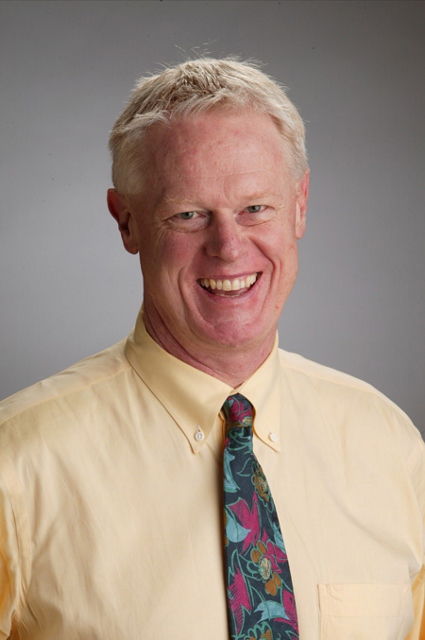 NAMB President’s Message: June 2016
NAMB President’s Message: June 2016
The SAFE Transitional Licensing Act is Good for Who?
HR 2121, The SAFE Transitional Licensing Act, was recently passed by the House. It now needs a companion bill in the Senate that will be reconciled with the House Bill and sent to the President.
The SAFE Transitional Licensing Act attempts to solve the problem of loan originators having to be licensed before they can originate loans in a new state licensed company moving from a federally-registered position or a state licensed originator attempting to get licensed in a new state. The solution provided by this bill is to give the new originator a 120-day period after a background check and credit check to originate loans without a license. It would modify the SAFE Act which requires all state-licensed loan originators to be licensed by the state in which the loan collateral is located.
The bill is very vague and does not answer questions that immediately come to mind. Who is the loan originator of record on the file during the interim period? What happens to these loans if the originator never becomes licensed? What happens to the company if they have a closed loan with no licensed loan originator associated with it? When a current licensed LO seeks a license in another state do they maintain their existing license? What prevents them from applying for a license in another state, do their one loan and then not complete the process?
The purpose of the SAFE Act was to eliminate unlicensed activity and require a licensed loan originator on all files to make sure there was a responsible party with the risk of their license on the line. As currently written, the SAFE Act allows state regulators to be more restrictive in their rules but not less. This bill requires them to allow the transitional period with no ability to be more stringent. States with an additional education requirement and/or a state-specific exam would be required to allow loans to be originated by un-licensed individuals.
The argument is these individuals have been originating loans in a federally registered capacity and therefore are qualified. Many banks were advertising that they would hire originators and no exam was necessary. Many originators who were unable to pass the national exam ended up going to work for these banks. Passing an exam does not necessarily make you a good originator, but typically there is an understanding of the underlying laws and regulations of our industry. Part of the reason for licensing, testing and continuing education requirements is so that loan originators know what is right and wrong and have their license in jeopardy if they knowingly violate any of those laws. If your supervisor or company asks you to do something that appears wrong, the loan originator knows enough to question or seek out advice.
As an instructor of the Loan Originator 20-Hour Pre-Licensing Class, I have firsthand experience with LOs attempting the transition from bank registered to state-licensed originator. Most of these individuals have a good knowledge of what was required by their banks which often varied with what the law required. The banks did not teach them illegal or unethical practices, but just the way that their particular bank did business. There were usually many safeguards in place at these large institutions that prevented the originator from doing the wrong thing but not necessarily the knowledge of what the law required. In going to work for a state-licensed entity many times these safeguards are not in place or may be incorporated in a different work flow. After the class and exam, these individuals are in better position to operate as a state-licensed loan originator.
Typically, the need to have a transition period is due to the process of becoming a state licensed loan originator. Many banks maintain the NMLS registration for their employees. When the employee goes to the NMLS site to pursue a state license the notice goes to their employer, who would then terminate their employment. The issue then becomes how does the originator earn income while getting licensed, as they have no job or ability to earn in the meantime. A better solution to this is to make the NMLS process private and ask the applicant who to notify of their milestones. This would allow the prospective originator to get their license while still employed at the bank, thereby eliminating any need for a transition period. NMLS allows them to keep the state license inactive while working at a federally chartered institution.
The other item needed would be to have states that wish to, to allow a license to be issued for an originator without a sponsoring lender or broker. This would allow the federally-registered originator to be in a position to change employment when they are ready without having to transition. Many states allow this now for the reason of encouraging originators to get their license and work in the environment that best serves their needs.
HR 2121 also allows a transition period for existing state-licensed originators who wish to be licensed in another state. The issue here is working loans in a new state without knowledge of that state’s laws. Already being licensed means they have the prerequisite background and credit checks and could begin the 120-day period as soon as they have an application in a state they are not licensed in. They begin the application process, do their one loan and abandon the process. They may never take the required courses or exams showing proficiency in that state’s particular requirements.
Another question that arises is how many transition periods are allowed? If the first transition period expires, can the originator reapply and begin a new 120-day period? Can the originator get several transitional periods in several different states at the same time?
The big question then arises as to where the push for this bill is coming from. Is it all the federally-registered originators demanding a means to go to work for state-licensed mortgage companies? Or is it coming from state-licensed mortgage companies looking to expand into new geographical areas in a rapid manner? Either way is the answer to allow unlicensed origination activity as a solution? This is precisely what the SAFE Act sought to eliminate. Do consumers really want their mortgage transaction handled by someone just learning the laws and regulations in their area? Isn’t that was caused many of the problems that were evident during the period prior to the mortgage crisis?
CSBS, the Conference of State Bank Supervisors, has reviewed the legislation and issued no opinion. This is probably due to the many unknowns. Many state regulators comprehend the issue and are in favor of a solution but do not like the idea of unlicensed activity in their state or the fact that this eliminates their ability to be more restrictive.
As an example, consider a large online lender wanting to move into your state. Rates are good and the housing market is hot. They do not want to wait and scale up but hit the market hard from the beginning. They induce a bunch of bank registered LOs to come over and man their telemarketing center in that state. They may or may not know the state laws required. They are put to work in telemarketing environment and are kept busy quoting rates and answering calls. They are not learning what they need to know and have less time to take the class and pass the test than when they worked at the bank. If they do not get their license in the 120-day period, the online lender merely replaces them with someone new. Now, the bank registered LO has no income or job but does have the time to study. This is not good for the bank LO.
The recently-hired telemarketer takes a call from a consumer attracted to the online lender’s low rates. Rates are lower because the LO’s compensation is less than a straight commission LO. Against the real estate agent’s advice, the consumer goes with the online lender. The new LO makes a small error in getting state required disclosures signed and the consumer misses their closing date and the lock expires. The seller of the property then misses their simultaneous purchase. In the hot selling market, some may lose the opportunity to make their purchase altogether. This is not good for the consumer.
The local small business mortgage company loses deals to the new online lender that has moved in and is taking business with low teaser rates. This does not help the small business mortgage company.
State regulators look bad, because they are unable to control these online lenders because the legislation forces them to allow unlicensed activity and prevents them from being more restrictive. The bill is not good for state regulators.
A loan originator gets a call with a large loan in an adjoining state. He applies for a California license and originates the loan. After closing, he withdraws his application. He has done a loan in a state without attaining the required knowledge and may harm the consumer in that state with his shortcoming. He has also taken a loan away from an LO that has done the training and supports the local community and has knowledge of local programs that might have been better for the consumer than the one chosen by his novice out-of-state LO.
If by chance a small business mortgage company hires a bank registered LO and allows them to originate. The learner’s permit LO makes a mistake that harms the consumer. The student LO has no bond or state fund to go against so the consumer and state go after the small business mortgage company. The company may be put out of business and the LO may become ineligible for licensing because they made an error while learning the business on the job.
There is a need to bring on new licensed loan originators. We should concentrate on the education and recruiting while maintaining the safeguards instituted with the SAFE Act. Since there are several ways to accomplish the goal of this bill without new legislation limiting states abilities to regulate there is no compelling reason to push this legislation at this time.
This bill is bad for all concerned except large mortgage bankers attempting to quickly move into a new market.
Sincerely,
Rocke Andrews, CMC, CRMS, President
NAMB—The Association of Mortgage Professionals
[email protected] ♦ JOINNAMB.com
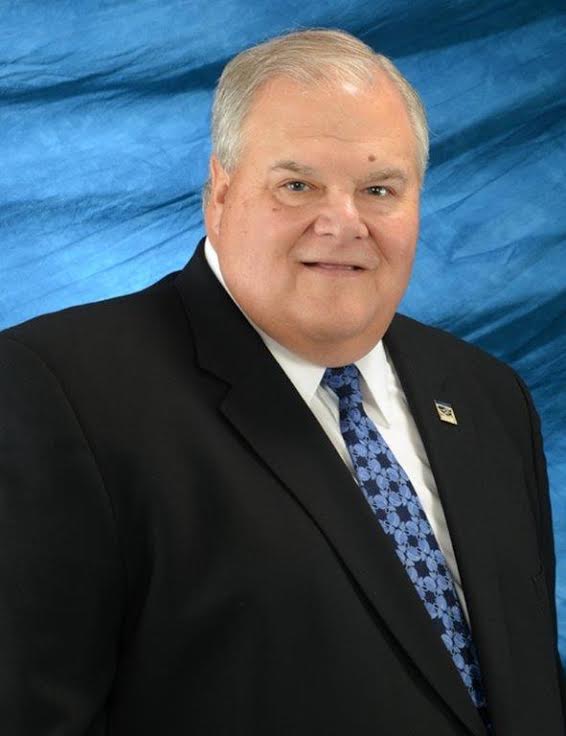 The CEO Perspective
The CEO Perspective
A Message From NAMB CEO Donald J. Frommeyer
This is kind of a different article for me, as I am in the mood to ask questions and see what type of responses I get. I have been racking my brain for a few months as to why we get all of these people to register for free to come to our conferences and then they don’t come. I can see some percentage of them doing this, but not with some of the numbers that I have seen the last two NAMB conferences.
For instance, NAMB puts on three conferences a year now, and the one that has the least amount of fallout is the NAMB Legislative & Regulatory Conference in Washington, D.C. We had 129 people register for this conference and 128 showed up. Now, all of these people pay $295 as a registration fee, but they show up. They all also attend all of the functions and the breakout sessions.
At NAMB East, we had more than 600 people sign up. Yes, 600 people and only about 300 of you came. The registration was free because we try to provide you with everything and you make the commitment to fly there and pick up your room. You are given the best we can provide as far as an exhibitor extravaganza that brings the best to see you. These exhibitors go out of their way to make sure that they are there to help you. All you have to do is show up (and by the way, last year was our first try at doing NAMB EAST and we learned a lot to make it bigger and better in 2017 … there will be more information available shortly as to where we are going and what is going on so stay tuned).
At NAMB National last year, we had more than 3,500 registrations. The badges were everywhere on shelves and tables. We have members and non-members, but we don’t discriminate. We want you to come and see our National Conference and get everything you can out of it. And the cost to you again is nothing … its free. All of these conferences are possible because of our exhibitors. And the number of you who showed up was approximately 2,800. We have offered you excellent speakers, excellent breakout sessions, great exhibitors, exhibitor parties, NAMB parties, continuing education opportunities, government affairs related breakouts, and much more. Yet, 700 people did not show up.
So, with all of this in mind, I have set it upon myself to do much better. I have to get more of you—the originator and owners—to show up at these events. Going forward, it is all about your attendance. If you sign up, I need to get you there. So why did you sign up but choose not to go? That is what I need to find out. Some of you couldn’t go for some reason or another, and that should only be about five percent of you. My goal this year is to get all of those 3,500-plus people to register again for NAMB National, and it be FREE, and to have the attrition rate at approximately 175 people. That means that we should have more than 3,300 people attend our event in Vegas from Sept. 23-26 at the Luxor Hotel again. This is the last year on this contract, but the rates are still fantastic to stay there. So start to get you reservations for you flight, your room and your mind completed so you can be there. Free registrations will be opening soon on the NAMBNational.com Web site. You can go there and see some of the stuff we have planned. There is even a golf outing planned for Sunday in the morning.
So, if you have a few minutes, please e-mail me and tell me what you need to make sure that you are there at [email protected]. This is all about you being there.
Donald J. Frommeyer, CRMS is chief executive officer for NAMB—The Association of Mortgage Professional. He may be reached by e-mail at [email protected].
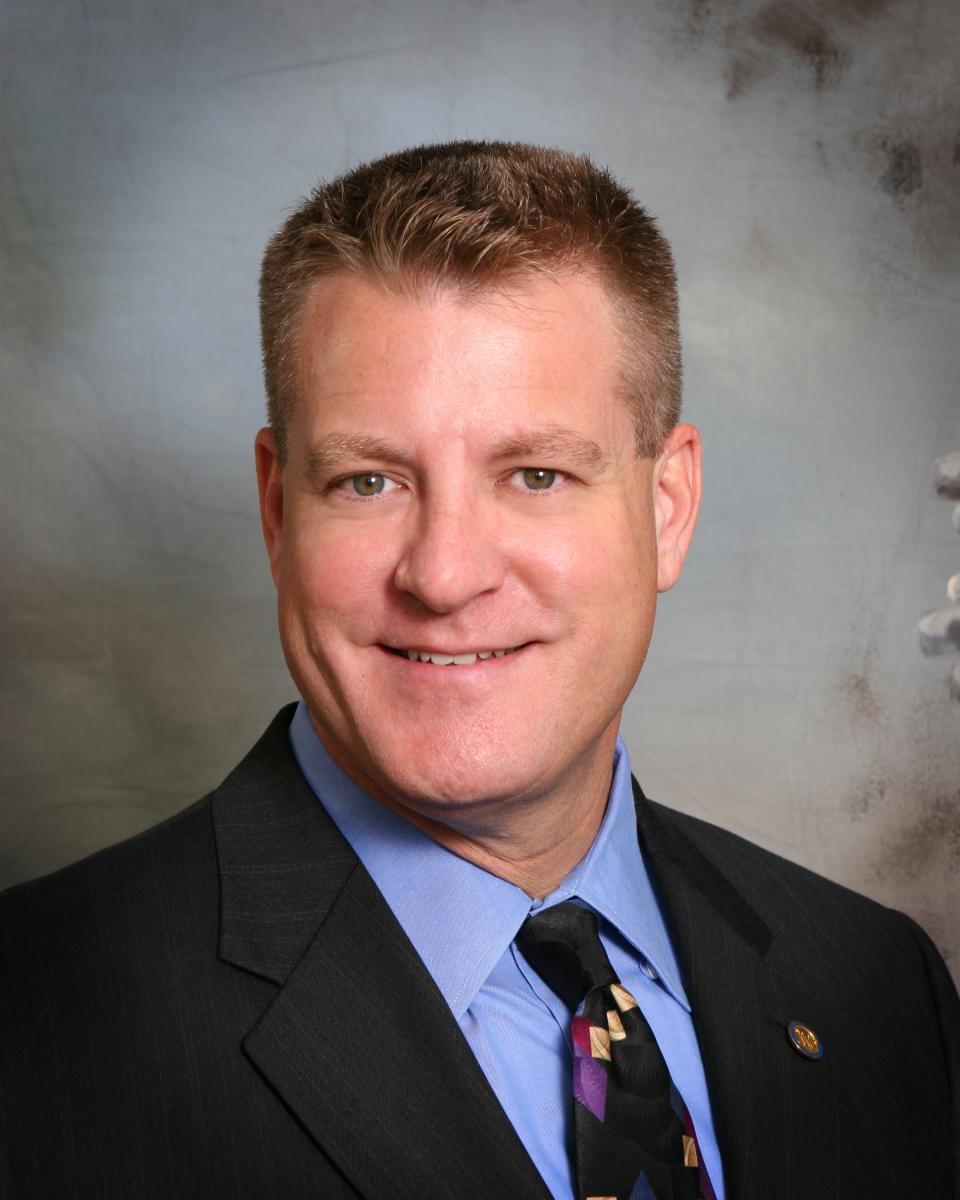 We Are All in This Together
We Are All in This Together
By Fred Kreger, CMC
Last April, I wrote an article about what characterizes a person who originates mortgages.
Here is my quote from that article:
“Why isn’t every mortgage originator a member of NAMB—The Association of Mortgage PROFESSIONALS? And a member of your own state organization. Why hasn’t every originator embraced organizations that advocate, educate and provide industry guidance for all stakeholders to thrive? Maybe it’s awareness or apathy. If you are reading this article, you know an originator that is not a member. I implore you to be an advocate for the originator and the homeowner. Be involved in one way or another. It doesn’t matter HOW you fund a loan, you are a mortgage professional and we must all support every channel that allows access to credit for our client homeowner.”
So supporting each channel of origination is important to the whole industry. We, as NAMB members, have been advocating for this to our elected officials and regulators. Make an even playing field so everyone can compete fairly.
We have seen when the game is fixed and a few have more power than others. Do you all remember our industry in 2005-2009? Or have you all seen or read The Big Short? We must always advocate for our clients the best way we know how … and create an environment that promotes fair competition.
Now that I have gotten all of your agreement, I wanted to bring up a question that is raised every year by our NAMB members and board of directors. Who do we serve? We started out serving only the broker community, but we and many state associations have embraced other channels. Too many associations have changed their names from “Association of Mortgage Brokers” to “Association of Mortgage Professionals.” Our industry has changed, and thus our associations have changed with the times. There are associations like the Mortgage Bankers Association (MBA) that represent mortgage banking companies, but not necessary represent or provide direct support for the individual mortgage loan originator … regardless if they are employed by a broker, banker or credit union.
I bring this point up because we may all need to face our own identity crisis as associations. Where do you fit in as an originator? At some level, aren't all originators small businesses? They are entrepreneurs at the core of their values. They must get up every day and hunt then gather. Our loan originators today are better equipped to counsel and advise our clients. Let’s not create separation of the channel. We must embrace and learn from each other, no matter where we ultimately receive the money to lend. When all is said and done as I have told all three of my daughters when they ask what I do … I joke and tell them, “I sell money.”
Thank you and Namaste’
Fred Kreger, CMC is branch manager at American Family Funding, a Division of American Pacific Mortgage. He is a past president for the California Association of Mortgage Professionals (CAMP), and currently president-elect and Government Affairs Vice chairman for NAMB—The Association of Mortgage Professionals. He can be reached by e-mail at [email protected] or call (661) 505-4311.
 NAMB Membership and Cultivating Relationships
NAMB Membership and Cultivating Relationships
By Linda McCoy, CRMS
Relationships are a big part of why you need to become a member of NAMB—The Association of Mortgage Professionals. Over the last 15 years, I have made many friends traveling all over the U.S. for different NAMB events. We have met in many different locations, wined and dined, laughed, exchanged ideas, studied in classes together and just became what I would call friends.
My article this month is about why I am and continue to be a member of NAMB. I am an owner of a small hometown business who loves her clients and the challenge to be able to get the deals done when we face impossible odds. I have struggled with underwriter guidelines, government regulations, tests that were not easy in an ever-changing industry, insurance companies and title companies that have their own rules and cannot make their square pegs fit into our round holes, and people who continuously think that we are asking for way too much for loan approvals. We have, as loan originators, learned our jobs very well or we would not have the licenses to continue our business.
I am sure that each and every one of the originators reading this article have had that nightmare loan that keeps you up at night. This is the loan that you have done everything in your power to fix, and it just seems like you are snake bit.
I have been in business for more than 23 years and this one loan was at the top of the charts. The odd thing was that it was the perfect client, with an 800-plus credit score, lots of money in the bank, a very low loan-to-value (LTV) purchase and the man had been on his job for years in the same line of work. What could go wrong? I thought it was a slam dunk. We sent it to one of the best companies in the U.S. and got our approval back in a day or two with little or no conditions. This is my best real estate agent referral partner. I was very excited and the client was elated. It then took a turn for the worse and was spiraling down fast because of the insurance. I forgot to mention it was a condo with two units in the whole condo project at the beach. The insurance company said that you couldn’t get the policy the lender required on the island. We tried for weeks back and forth and ended up with another insurance company finally giving us exactly what we needed, but it took two weeks to finally get it straight. We were down to one possible day left to close this loan, the contract and the rate both expiring the next business day, with upset real estate agents, sellers and clients. The client was supposed to close before the holiday weekend so he could get his condo in order for all of his friends coming in for an annual fishing tournament. He was so excited he had friends coming from all over to stay in his condo and be there for the opening day tournament. Luckily, the Closing Disclosure (CD) had gone out but the insurance conditions had been sent to underwriting but not cleared by the underwriter yet. The client was adamant that the loan would close the next day. I knew that conditions at the end of the month rarely get looked at much less the loan actually gets closed the same day the condition gets cleared. I tried to explain this to the client. She just would not take “No” for an answer. I was to the point that I was shaking over the sheer anxiety caused by this stressful situation. I had no way to make this happen. I even thought to myself that only a miracle could help with this one.
I go to almost all of the NAMB events and have met many executives. I collect business cards and keep them. I found myself frantically looking through my business card stash. I have a drawer full of cards that I have saved over the years. About a month ago, I had taken all of the cards and rubber banded them together in stacks of about 100 each. When I attended NAMB EAST, I remembered getting a card from one of the top executives at this company who said that if I ever needed him to give him a call. I knew that I alone had no chance to get this deal done. I waited to the last possible minute, before I picked up the phone and made that call. He listened to the whole story, and to my surprise, I was told that since it was late in the day that he could not get the package out until the next business day after the underwriter cleared that last condition. The agony that I had put myself through over this loan was over. I had real help now and to me this was my miracle.
I am so thankful that I am a NAMB member and have friends across this country who I can turn to when I really need them and get the support that I need. His whole team jumped in and helped make this happen. We closed that loan and my story had a happy ending. My message is: I would have lost my best real estate agent source and the customer if I had not been a NAMB member. Relationships can last a lifetime. Join NAMB and do business with lenders who support your Association of Mortgage Professionals.
Linda McCoy, CRMS of Mortgage Team 1 Inc. in Mobile, Ala. is a member of the NAMB board of directors. She may be reached by phone at (251) 650-0805 or e-mail [email protected].
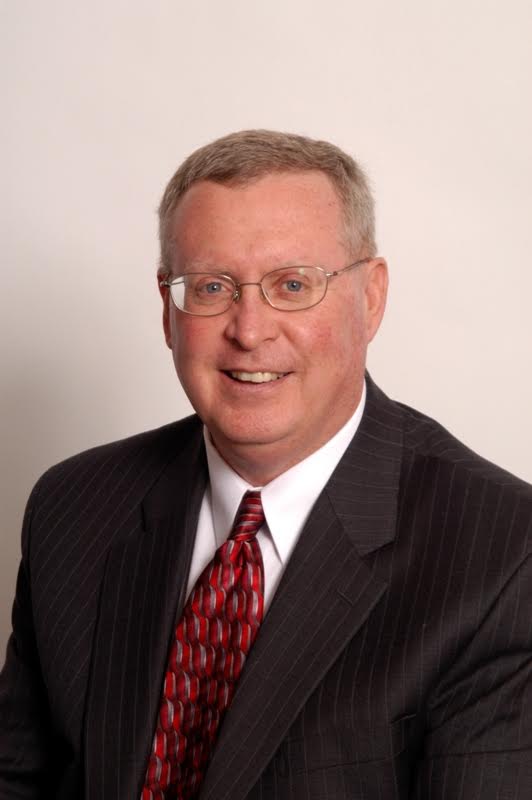 NAMB’s Education Corner: Sharpen Your Axe
NAMB’s Education Corner: Sharpen Your Axe
By Bob Sweeney, CRMS
Sam Wyche was one of our keynote speakers at NAMB East in March. He spoke of the importance of continuing education in the mortgage profession and the benefits received by sharpening your skills. He told the story of The Wood Cutter to emphasize his point. The following is a similar version of his story:
“Once upon a time there was a very strong wood-cutter. He asked for a job from a timber merchant and he got it. The pay was very good and so were the work conditions and for that reason the wood-cutter was determined to do his very best. His boss gave him an axe and showed him the area in the forest where he was to work.
“The first day the wood-cutter cut down 18 trees. His boss was extremely impressed and said, ‘Well done. Keep it up. You are our best wood-cutter yet.’ Motivated by his boss’s words, the wood-cutter tried even harder the next day, but he only cut down 15 trees. The third day he tried even harder but only cut down 10 trees.
“Day after day the woodcutter cut down fewer and fewer trees. His boss came to him and told him that if he did not chop down more trees each day he would lose his job. The wood-cutter needed the job, so he tried harder and harder. He worked during his lunch breaks and tea breaks, but still he could not cut down enough trees. ‘I must be losing my strength’ the wood-cutter thought to himself. He worked over-time, but still it was not enough.
“Eventually his boss came to him and told him he was fired. The wood-cutter was really upset, but he knew that he had worked as hard as he could and just did not have enough time to chop more trees. He sadly handed his axe back.
“The boss took one look at the axe and asked, ‘When was the last time you sharpened your axe?’
“’Sharpen my axe?’ the wood-cutter replied. ‘I have never sharpened my axe. I have been too busy trying to cut down enough trees.’”
Moral of the story … Don’t get so busy that you don’t take time to sharpen your axe.
We all think our SAFE eight hours of continuing education are enough? It is not enough. Our industry is constantly changing. We need to stay current with the latest product developments, skills and new technologies. There a so many Internet and live classes available to us, but we are not taking the time out of our busy schedules to take advantage of them. If you are not an expert in VA, FHA or USDA requirements, for example, now may be the time to become an expert.
NAMB offers two professional certifications, the Certified Residential Mortgage Specialist (CRMS) and Certified Mortgage Consultant (CMC). There has never been a better time for mortgage professionals to seek certification for a number of reasons. Our industry is under increased scrutiny and it is important for those of us who are true professionals to conduct business with honesty and integrity, putting the best interests of our clients at the forefront of all we do.
Whether it is required or not, continuing education can be important for career satisfaction. Continuing education can boost confidence and lead to opportunities for career advancement.
Now is the time to “Sharpen your axe.”
We welcome any input from all mortgage professionals or wholesale partners. If you are not a member, now is a great time to become a member. Go to your state association Web site or visit NAMB.org and join as a professional member.
Bob Sweeney, CRMS is senior sales manager at CrossCountry Mortgage, is director on the board of directors for NAMB–The Association of Mortgage Professionals and serves as NAMB’s Education Committee Chair. He can be reached by phone at (317) 625-3287 or e-mail [email protected].
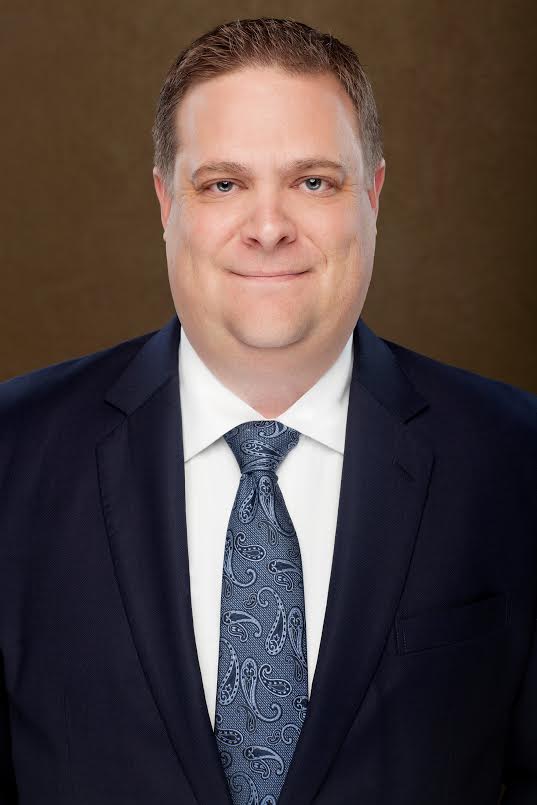 Getting to Know: Nathan S. Pierce
Getting to Know: Nathan S. Pierce
Director, NAMB—The Association of Mortgage Professionals
By Phil Hall
Nathan S. Pierce first became involved in the mortgage and banking industries in 1991, and by 1994, he founded Advanced Funding Home Mortgage Loans in Salt Lake City, Utah. He has also been a prominent figure in NAMB—The Association of Mortgage Professionals and the Utah Association of Mortgage Professionals (UAMP).
National Mortgage Professional Magazine visited with Pierce to review his quarter-century in the mortgage profession.
Did you originally intended to have a career in the mortgage profession?
It was a little bit of a mistake. I was going to school, and I had entered the industry as an assistant in an office. I took a liking to it and decided to stay. I moved into a management position after a short period of time and fell in love with the work.
What made you fall in love with the work?
I loved the pace of the business, the excitement, the constant change. I started with a small business, which gave me the opportunity to get an in-depth feel for the mortgage industry.
Also, I learned that this business is involved in people’s lives. After all, buying a house is one of the five top things people do. I found that exciting.
When did you first get involved with NAMB?
I’ve been a member throughout my career. I was first really involved in 2010, when I stared serving on various committees. I’ve worked on the convention committee, and this is my third year as its chairman. I also worked on the Membership Committee and with the Political Action Committee. Last year, I was elected to the board of directors.
What has been your level of involvement with your state association?
In Utah, I have been a member since 2010. That actually prompted me to get more involved in NAMB. I served as president of the state association in 2011 and 2015, and in all capacities of our local chapter.
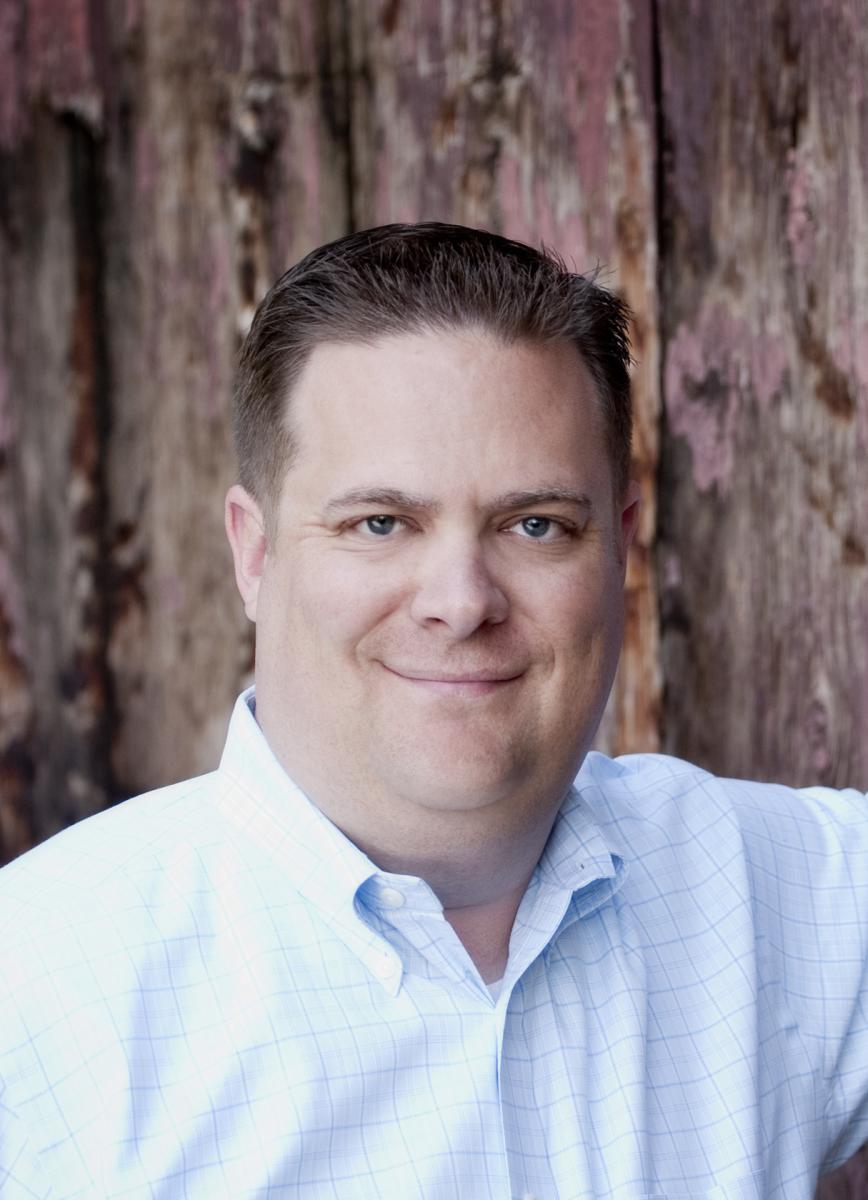 How and why did you get involved in UAMP?
How and why did you get involved in UAMP?
First, I was asked to be involved and as someone that is very passionate about the industry and has been blessed with a long successful career I felt I owed something back. Second, I saw a need to help mortgage professionals become true experts at their craft along with helping them to understand the importance their role is in the legislative process.
In your opinion, why is it important for mortgage professionals to be involved in their state association and with NAMB?
For starters, it is crucial to know what is going on in the industry. If I was not involved in the associations, I would have a limited understanding of what is taking place. And membership keeps you out of trouble by preparing you for the challenges that face us.
We could not do what we do without the support of NAMB. NAMB provides valuable resources to our association and is instrumental in our daily operations. Without NAMB, we would not have the recognition with our national delegation of legislators that we do. They make becoming a member of the UAMP more valuable than it would be without them. The success of the UAMP and NAMB are one in the same and to achieve our goals a tight relationship between us is priceless.
What do you see as the state of the mortgage profession over the next 12 months?
I think we’ve seen the industry adjust to a lot of changes. We are working within the rules and regulations that were put in place by the federal government. But there are also a lot of rules and regulations that have not been completely defined. In the next one-to-two years, we will see how they are actually defined by litigation and government actions.
What can the industry do to attract more young people into mortgage careers?
We’ve got a lot of people that think owning a home is not important. And there are a lot in the younger generation that believes homeownership is too difficult and not achievable. Younger people have to understand that homeownership is not as difficult as many media reports make it out to be.
We also need to let this generation know about the possibilities of working in the industry. Being a mortgage professional allows them to make a very good living—and, sometimes, an exception living—if they are willing to put hard work into their efforts.
Of course, it is hard to achieve this when the industry is presented as the bad guy in the media. We have to be able to turn that around let people know who we are.
 What is state of housing like in your home state of Utah?
What is state of housing like in your home state of Utah?
We’ve been fortunate in Utah that we’ve experienced growth throughout the entire state. However, we are also experiencing something of an inventory shortage. This has definitely been a sellers’ market, and the homes have been selling very, very quickly—often within a few days.
What do you see as the greatest challenges currently facing your business?
We are continuing to grow our compliance department and we are working to keep that staff educated on all of the changes that impact the industry. And going back to what we discussed earlier, we are also working on the replacement of an aging workforce. It is important for us to get out there and find the Millennials that will be the future of our business.
You certainly keep very active in your work. How do you spend your leisure hours?
I wish I had more leisure hours! I volunteer for the state and national trade groups. But I also spend a lot of time with my kids. I coach my kids’ sports, and there is a sports event going on almost every day but Sunday, when nearly everything in Utah shuts down. I also love golf and enjoy camping.
Phil Hall is managing editor of National Mortgage Professional Magazine. He may be reached by e-mail at [email protected].
This article originally appeared in the June 2016 print edition of National Mortgage Professional Magazine.





